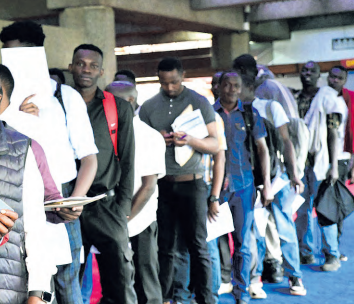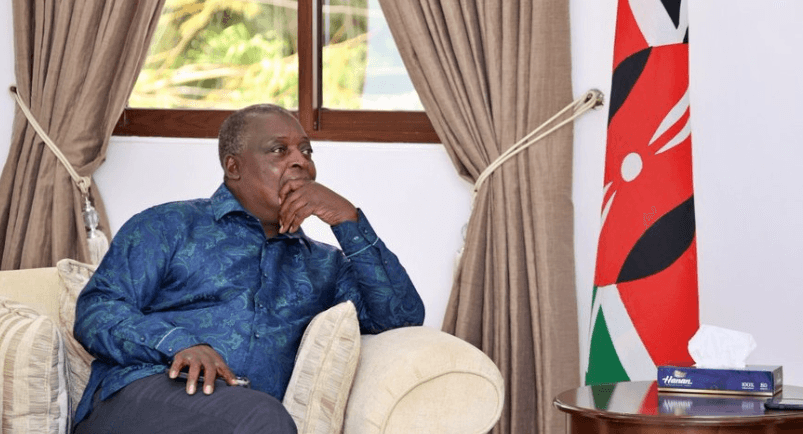

ARTICLE BY CALEB MWAMISI
Kenya is at a crossroads in development, challenged by historical hurdles while making notable progress. The current administration, led by President William Ruto, has implemented significant reforms and policies to addressing long-standing problems, such as fiscal indiscipline, unemployment, and poverty.
Despite these advances, a pervasive culture of online negativity and relentless criticism often undermines the government’s achievements.
The so-called ‘keyboard assassins,’ who thrive in digital spaces, dismiss government policies, projects, and even tangible successes, focusing solely on perceived shortcomings and controversies.
Since assuming office, President Ruto’s government has prioritised restoring fiscal responsibility and creating economic opportunities.
A key example of this commitment to fiscal discipline is the reduction of government expenditure by Sh145.7 billion, targeting both recurrent and development budgets across government.
This is particularly commendable, given the need to safeguard critical sectors such as education, health care, and agriculture.
Subsidised fertiliser, for instance, has directly helped more than 5.4 million farmers, contributing to agricultural growth and food security — an achievement often ignored in the criticism-driven discourse dominating platforms such as X.
In addition to fiscal reforms, the Ruto administration has tackled persistent unemployment, particularly among more than five million jobless youth.
By focusing on domestic and international job creation, the government has been proactive in addressing the decades-long problem.
The Affordable Housing Project to reduce the housing deficit is not just about providing homes but also creates jobs across Kenya.
Local contractors, builders, artisans, and workers such as bricklayers, plumbers, carpenters and electricians, have found solid jobs in these projects. These programmes not only provide much-needed housing but also stimulate local economies, empowering small businesses and tradespeople while contributing to the broader growth of infrastructure.
On the international stage, the government has worked diligently to open up employment avenues through agreements with countries such as Germany, Qatar, and the UAE.
These agreements have enabled tens of thousands of Kenyan workers to secure jobs abroad, particularly in construction, health care, and domestic work.
The agreements with Qatar, for instance, have been particularly beneficial to skilled and semi-skilled workers, many finding jobs in the booming infrastructure sector of the Middle East.
These efforts not only address domestic unemployment but also enhance Kenya’s global standing, positioning its talent on the international stage and facilitating remittances supporting families and communities.
These remittances contribute significantly to national income, a key driver of economic growth. Despite these accomplishments, critics often fail to acknowledge the tangible benefits of these initiatives, focusing instead on flaws or controversies that can easily be amplified online.
The growing trend of negativity, particularly in digital forums, has serious negative consequences for patriotism and national unity.
Former US President Barack Obama said, “We are shaped by what has been,” a stark reminder that overemphasising past mistakes or current challenges without recognising ongoing progress can create a national psyche of defeatism and pessimism.
When critics focus exclusively on what is wrong without appreciating what is right, they diminish the collective effort required for positive change.
This culture of constant criticism, especially online, erodes public trust in the government and demoralises citizens. While constructive criticism is essential for accountability, there is a fine line between holding leaders responsible and engaging in baseless, unproductive attacks. In many instances, critics have dismissed data on job creation or questioned the integrity of economic reforms, despite clear evidence of their positive impact.
Such negativity not only undermines the government’s efforts but also saps the collective energy and optimism necessary for a nation to thrive.
Optimism, on the other hand, is a powerful force for national progress. Countries like South Korea, Singapore, and Rwanda have shown that a belief in national potential, even in the face of adversity, is essential for overcoming challenges and achieving remarkable success.
These nations focused on building collective optimism, which in turn propelled their economic growth and development.
Kenya must adopt a similar mindset. While it is essential to hold leaders accountable, it is equally important to recognise and celebrate the successes that have been achieved.
By doing so, Kenyans can create a sense of national pride and ownership, uniting the country behind shared goals and values. Beyond fiscal reforms and job creation, President Ruto’s administration has also made strides in enhancing transparency.
The digitalisation of public services, such as tax filing and government procurement, has reduced inefficiencies and minimised opportunities for corruption.
These measures, though not always glamorous, lay the foundation for a more accountable and efficient government.
This focus on good governance strengthens the overall structure of the state and encourages citizens to engage in the political process with greater confidence.
Kenya has also made commendable progress in tourism and trade, key sectors holding significant potential for growth.
Infrastructure improvements, especially in transportation and logistics, have made the country more accessible to international tourists, while partnerships with global investors position Kenya as a strategic hub for regional trade and innovation.
These efforts are expected to boost revenue from tourism and trade, contributing to long-term growth. As Kenya stands at the threshold of remarkable growth, the key to unlocking its full potential lies in a shift towards a more positive, forward-thinking national mindset.
The negativity that often dominates public discourse must be replaced by a spirit of constructive dialogue, collaboration, and collective action.
By recognising and celebrating the progress made, Kenyans can develop a sense of ownership in their country’s future, which will drive continued development and resilience. Optimism is not merely a feel-good sentiment — it is a critical tool for fostering unity, inspiring action, and achieving lasting progress.
Realising Kenya’s vast potential requires more than just government action; it requires the collective engagement of all citizens in building a prosperous future.
When citizens move beyond constant lamentation and adopt a mindset of hope and possibility, the nation will be empowered to confront challenges, achieve greatness, and rise to its full potential.
CALEB
MWAMISI - A Political
Commentator
















